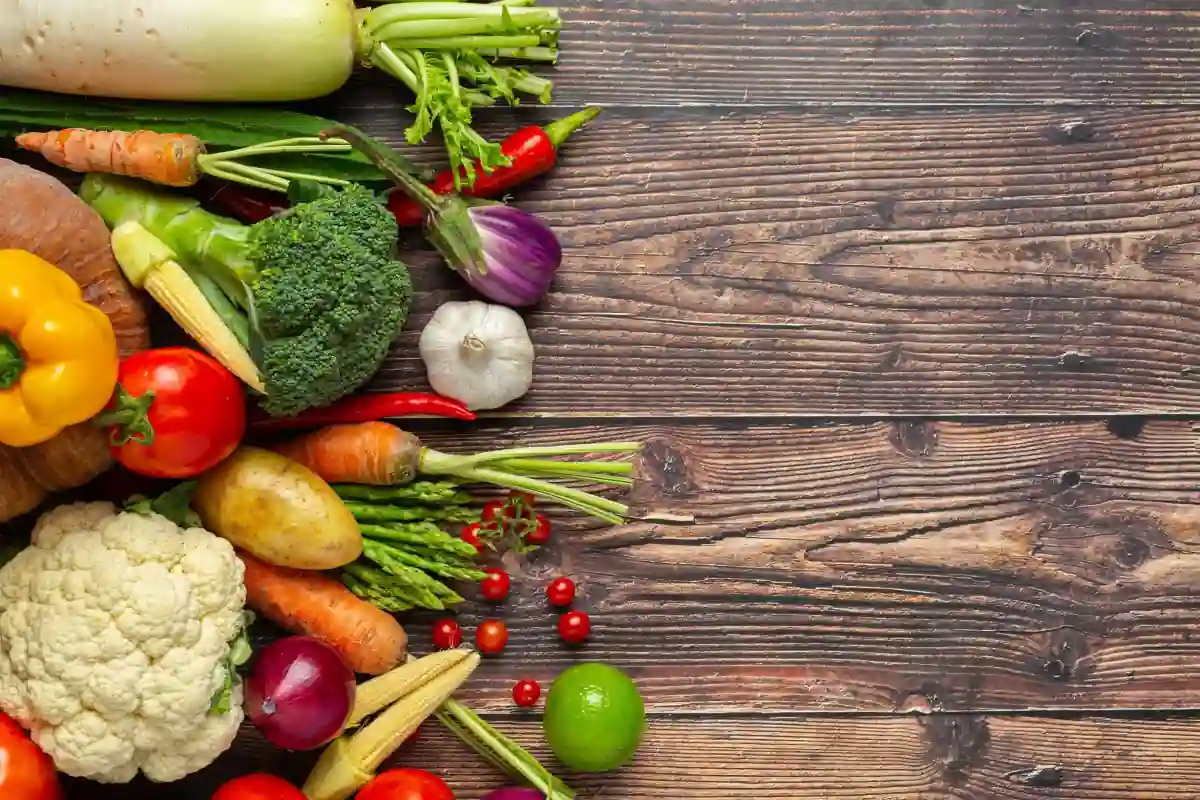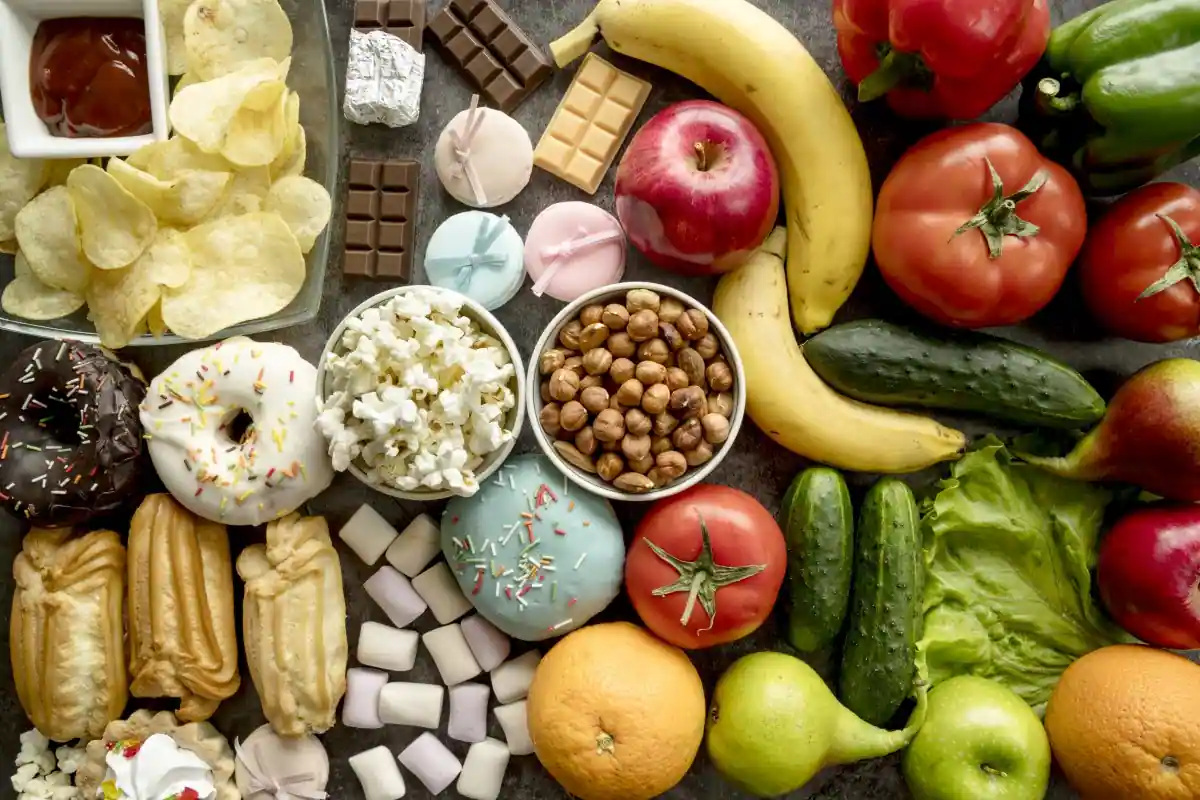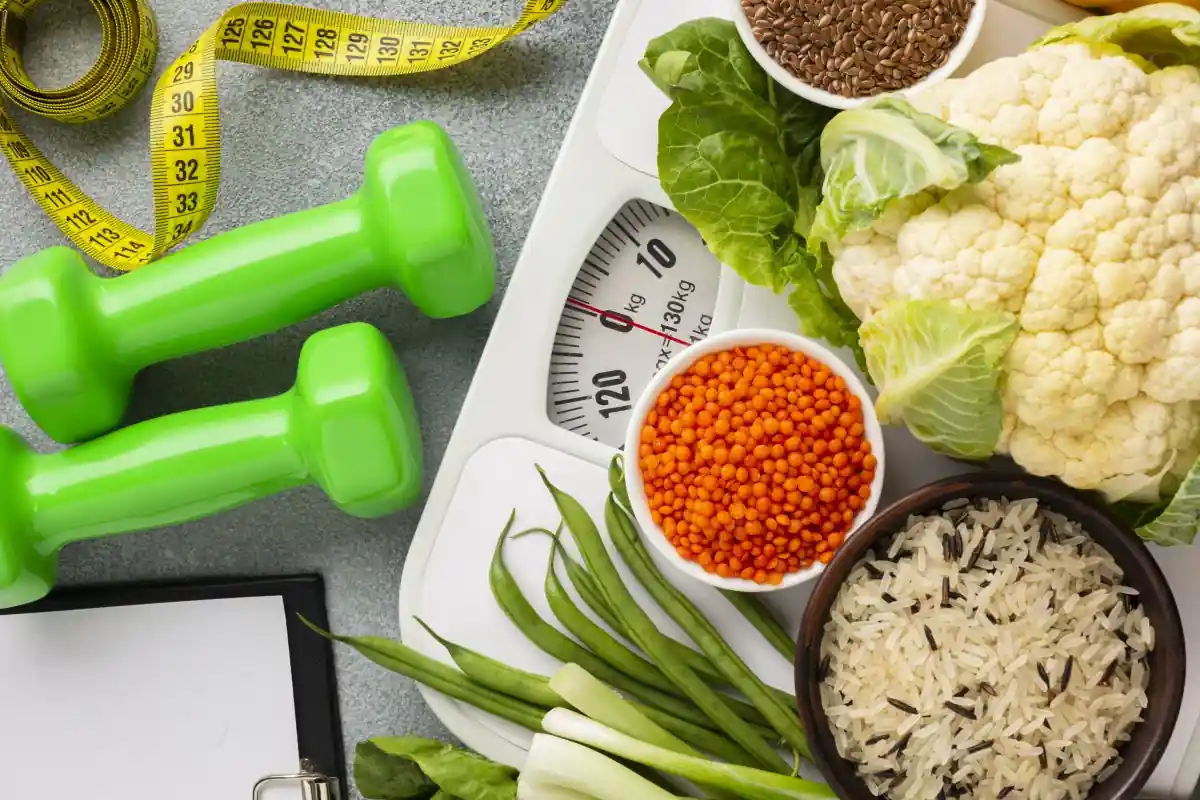
But What About Protein?
Let’s talk about protein. If you don’t eat chicken breast and cottage cheese everyday won’t you just wither away? Is it possible to build muscle while only eating plants? What about amino acid profiles?
Where Does Protein Come From?
Here’s an interesting thought virtually all protein comes from plants. Let’s start at the top of the food chain with a lion. For our scenario the lion gets it’s protein from an unfortunate zebra. The zebra meanwhile had gotten it’s protein from plants, thus the lion indirectly got its protein from plants. Whenever you work your way down the food chain, you will find that almost all protein begins in plants. As for the other smaller sources: fungi, bacteria, and some single cell organisms are able to synthesize their own protein, though none of these are a significant source for humans.
You might now say that perhaps the protein in plants is fine for a zebra but what about a human, surely we would end up deficient? Let me ask you a question, do you know anyone who has ever had protein deficiency? Probably not, because it is virtually non-existent in high income economies, only really being found in homeless populations or in people with eating disorders. Generally around the world, protein deficiency is found in places suffering from famine.
How Much do I Need?
If deficiencies are rare, how much does an average person need? What about someone who is into weight lifting and wants to build muscle? In the United States and Canada the recommended daily allowances say that an average adult should consume 0.8g of protein per kilogram of body mass. As for people looking to build muscle, I have linked 2 studies below from the Journal of Sports Medicine and the Journal of Cachexia, Sarcopenia, and Muscle, which found that 1.5g - 1.6g of protein per day, per kilogram of lean body mass, was the upper limit in terms of effectiveness for building muscle. This is for lean body mass so extra body fat should not be included in the calculation. In other words, you do not need to consume extra protein if you are overweight. It also goes without saying that this protein consumption needs to be paired with proper weight training: you will not just build muscle by eating protein and sitting around. A couple of notes, you will often see people online use these numbers, 0.8, 1.5, 1.6 grams of protein per pound, however this would be incorrect as the science states that this amount would be per kilogram (1kg = 2.2lbs).Were you to follow their advice, you would be eating over double what has been found to be most effective for muscle building.
What About Amino Acids?
Something else you may have heard is that plant proteins are incomplete and lack the amino acid profile that humans need. While it is true that animal proteins (except for gelatin) contain all essential amino acids in good levels, doesthat mean they are better? If we follow that logic, then the absolute best protein source would be other humans, as they would have the perfect amino acid profile. Anything we eat below cannibalism would require a more varied diet, so is there really a difference between needing to eat animal proteins and plant based ones? (and I certainly don’t recommend cannibalism as a diet!). Many plant based sources are lacking in one or more essential amino acids, but this is really not something you need to be worried about. If you eat a varied diet, you are not going to run into any problems. There are countless traditional dishes around the world consisting of base of a legume and a grain. That is no accident. Generally speaking, a legume and grain combined will provide all the essential amino acids. As a further note, things like soy and quinoa have very good amino acid profiles. To make it simple just eat a varied diet and you will have no problems.
Where to Find Protein?
So now that you know how much protein you need and you know to eat a varied amount, here are some good sources of plant based protein. (these list grams of protein per 100 calories)
-
Soy Beans and Soy Based Products
- Extra Firm Tofu - 10.5g
- Tempeh - 11g
- TVP - 13g
- Soy Milk - 8g
-
Other Legumes
- Chickpeas - 5.5g
- Lentils - 8g
- Beans - 6g
-
Seitan - 20g
-
Oats - 4g
-
Pumpkin Seeds - 4g
-
Peanuts - 4.5g
Beyond what I have listed, remember that basically everything has some protein in it. Whole grains, seeds, and nuts can help fill out your requirements. But remember that on average you only need 0.8g per kilogram of body weight. To put this into perspective, an average person who weighs 150lbs (68.18kg), would only need 54.5g of protein a day. Only if they were trying to build muscle would they need an increase. On the high end, if this person was a body builder or olympic athlete, the studies would recommend our 150lbs person would need 109g of protein for maximum muscle building potential.
A fun aside is that 100 calories of mushrooms actually has more protein than 100 calories of beef. 100 calories of mushrooms is a lot of mushrooms though, a fun fact but not super useful.
Sources
Journal of Cachexia, Sarcopenia, and Muscle



